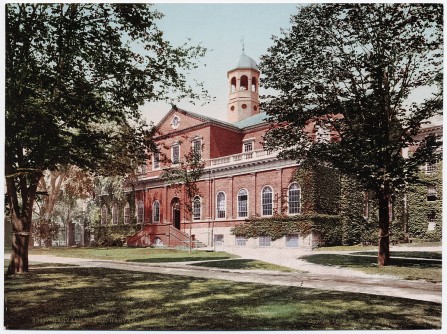Hillary Clinton is not the Democratic nominee for president --- at least, not yet. In New Hampshire, Senator Bernie Sanders (I-VT) is only eight points down (with 9 percent of likely voters still “undecided”). In fact, in both early primary states, Sanders has enjoyed an upward trend in his favorability ratings over the past four months, whereas Clinton’s numbers have remained fairly stagnant. With Team Sanders on the rise, it’s worth exploring his thoughts on political philanthropy.
According to Sanders’s campaign website, the major issues facing the United States are as follows: “creating decent paying jobs,” “income and wealth inequality,” “getting big money out of politics,” “climate change and environment,” and “a living wage.” Although the term “philanthropy” fails to appear on the site, many of his issues are directly related to philanthropic endeavors. For example, foundations certainly contribute to “big money” in politics (albeit indirectly) as well as lobby elected officials. Further, the philanthropic community has addressed many of Sanders’s key issues at length. A simple search of the phrase “income inequality” in the Chronicle of Philanthropy renders over a hundred articles.
Even though Candidate Sanders (D) has failed to discuss philanthropy over the past few months directly, Senator Sanders (I) has weighed in on a number of key debates involving the philanthropic community. Most famously, Senator Sanders launched a scathing campaign against 60 Minutes for naming Pete Peterson a “philanthropist” during a report on The Giving Pledge.
In November 2013, Charlie Rose sat down with Warren Buffett and a panel of Giving Pledge signatories. Included on the panel was investor (and former Secretary of Commerce) Pete Peterson. Most of Peterson’s philanthropic work includes his founding and chairing of the Peter G. Peterson Foundation, which, according to its website, is “a nonpartisan organization dedicated to raising awareness of America’s long-term fiscal challenges and promoting solutions to ensure a better economic future.”
Following the 60 Minutes report, Senator Sanders issued a press release criticizing “the nature of Peterson’s so-called philanthropy.” Sanders wrote:
I am not quite sure why 60 Minutes calls Wall Street billionaire Pete Peterson a philanthropist. . . . What Pete Peterson has done is throw hundreds of millions of dollars into lobbying campaigns to cut Social Security, Medicare and disabled veterans’ benefits. That, to my mind, is not philanthropy.
Despite the factual inaccuracies of the press release, Senator Sanders has a point: even CBS pointed out in their original reporting that Peterson’s focus in his philanthropic work had a “political tone.” However, there is a major issue with Sanders’ statement and, subsequently, with his view of philanthropy.
While it is much easier to deride than to define, Sanders’s statement tells citizens little about what actually qualifies as philanthropy. Reading the statement without context, it seems that Sanders establishes a distinction between the political and the philanthropic. Even if one disagrees with the statement, it is at the very least understandable and logically valid.
However, Sanders’ argument falls apart when we look at the rest of the 60 Minutes panel. Peterson was only one of two “political philanthropists.” Seated one row above him was investor Nicolas Berggruen, another signer of the Giving Pledge. Berggruen is the Chairman of the Berggruen Institute, “an independent, non-partisan ‘think and action tank’” that hosts a number of projects like the 21st Century Council and the Think Long Committee for California. These projects are undoubtedly political in nature as they focus on “global governance” and “evaluating policies and institutions vital for the state’s long-term future,” respectively.
The issue with Sanders’s statement is that it fails to indict all of the political philanthropists who signed the pledge. Peterson – who has contributed across the political spectrum, from the Center for American Progress to the Heritage Foundation – is the bad guy. Yet, Berggruen – who has donated to Democrats like President Obama and Senator Schumer – gets off scot-free.
Sanders has a point. But picking on Peterson for his beliefs seems to undermine his argument. Senator Sanders may not be “above politics,” like some of his supporters suggest, after all. It is worth asking the Sanders campaign, “what counts as philanthropy?” and “where does philanthropy fit in to the senator’s vision?”






